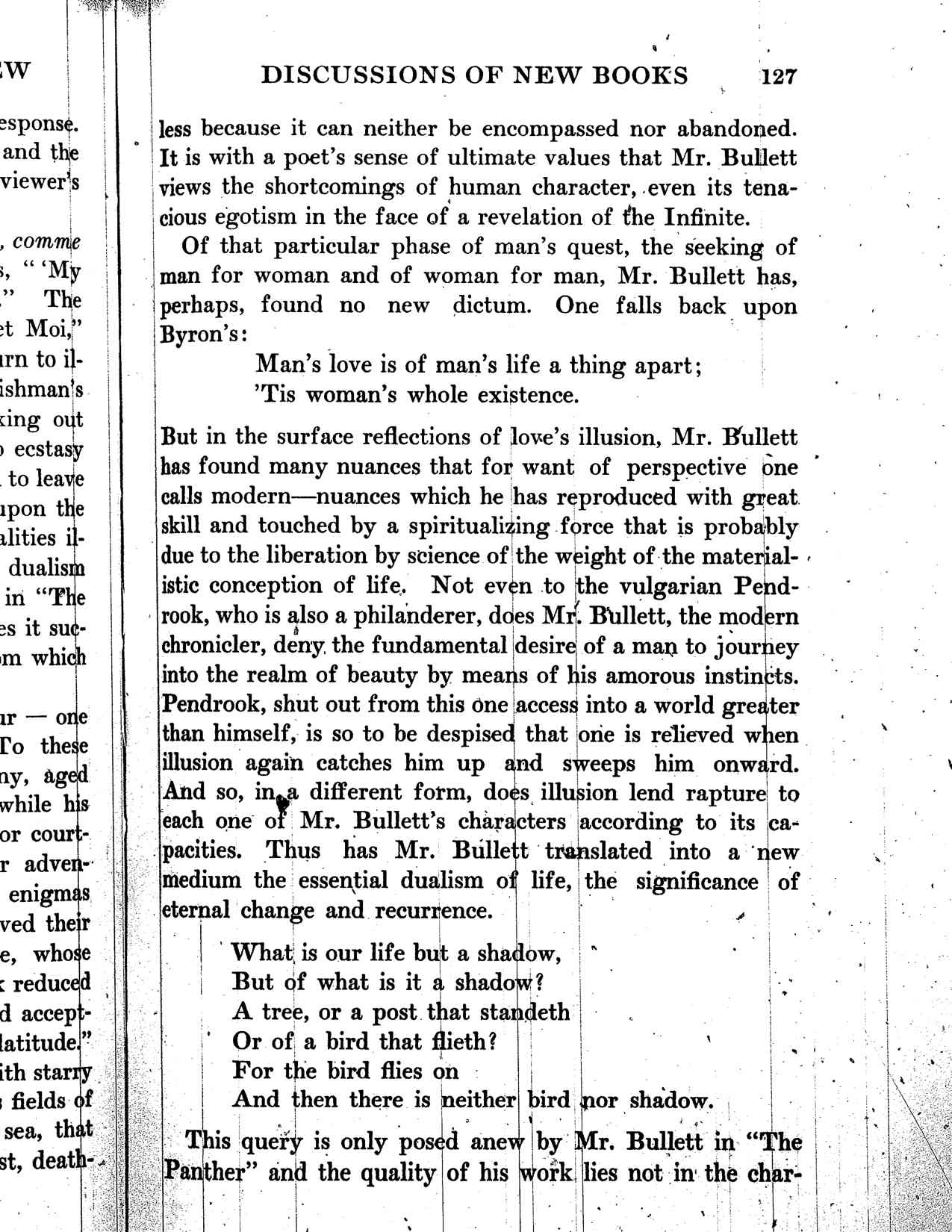
[new page]
because it can neither be encompassed nor abandoned.
It is with a poet’s sense of ultimate values that Mr. Bullett
views the shortcomings of human character, even its tenacious
egotism in the face of a revelation of the Infinite.
Of that particular phase of man’s quest, the seeking of
man for woman and of woman for man, Mr. Bullett has,
perhaps, found no new dictum. One falls back upon
Byron’s:
Man’s love is of man’s life a thing apart;
’Tis woman’s whole existence.
But in the surface reflections of love’s illusion, Mr. Bullett
has found many nuances that for want of perspective one
calls modern—nuances which he has reproduced with great
skill and touched by a spiritualizing force that is probably
due to the liberation by science of the weight of the materialistic
conception of life. Not even to the vulgarian Pendrook,
who is also a philanderer, does Mr. Bullett, the modern
chronicler, deny the fundamental desire of a man to journey
into the realm of beauty by means of his amorous instincts.
Pendrook, shut out from this one access into a world greater
than himself, is so to be despised that one is relieved when
illusion again catches him up and sweeps him onward.
And so, in a different form, does illusion lend rapture to
each one of Mr. Bullett’s characters according to its capacities.
Thus has Mr. Bullett translated into a new
medium the essential dualism of life, the significance of
eternal change and recurrence.
What is our life but a shadow,
But of what is it a shadow?
A tree, or a post that standeth
Or of a bird that flieth?
For the bird flies on
And then there is neither bird nor shadow.
This query is only posed anew by Mr. Bullett in “The
Panther” and the quality of his work lies not in the characters






